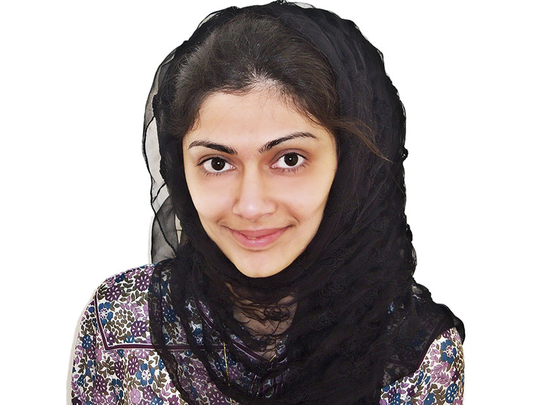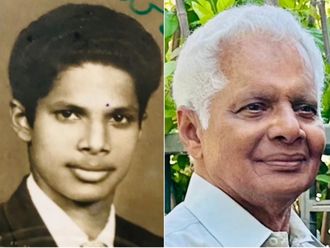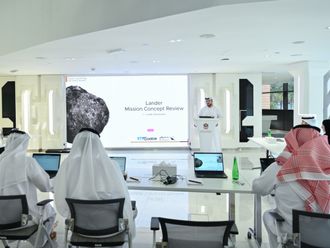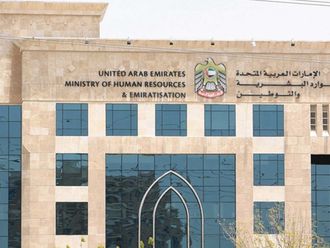
Dubai: As Breast Cancer Month gets underway, Dr Shaheenah Dawood, president of UAE Cancer Congress and consultant medical oncologist, tells XPRESS of the many challenges that the UAE faces in fighting breast cancer. The McGill University Hospital-trained Emirati with a Susan Komen Breast Cancer fellowship from University of Texas M.D. Anderson Cancer Centre, Dr Shaheenah has a Master of Public Health from the Harvard School of Public Health. She has also been awarded a research grant by Al Jalila Foundation for a unique research project which she throws light on. Excerpts from the exclusive interview:
As president of the UAE Cancer Congress, how would you describe the incidence of breast cancer in the UAE? Can you share the latest figures with us?
Breast cancer incidence is certainly increasing and at the present rate, we predict a steep increase by 2030. Exact numbers would be difficult to give for a number of reasons. First, our population is dynamic with a very small percentage of people actually staying put in the country for long periods of time. Second, we have a diverse ethnic group in the UAE. Third, patients tend to shop around and have part of their treatment in the UAE and part outside
What are the main challenges in fighting breast cancer in the UAE?
I believe there are several challenges that we face. The median age at diagnosis of breast cancer in the UAE is 10 to 15 years younger than in North America and Europe. This makes traditional methods of screening difficult in the cohort. I have always been an advocate of breast awareness that should go together with breast cancer screening. Anyone with a breast lump or any woman who feels something is not right in their breast should immediately go and get themselves checked out.
Young women with breast cancer have a plethora of issues that need to be dealt with properly, including issues surrounding fertility preservation, body image and genetic testing.
Third, we face a lot of cultural issues in that diagnosis of cancer is still considered taboo in a lot of communities, sometimes making it difficult to treat patients properly. We also lack clinical trials here that would afford women with breast cancer with the most innovative drugs that are being studied. Research is needed to study our unique population as well.
You’ve been awarded a grant by Al Jalila Foundation for research. What is it about?
I would like to thank Jalila Foundation for the grant. Their goals towards encouraging research in the country are to be applauded. The project is currently being conducted at Mediclinic City Hospital at the comprehensive cancer centre that has a unique set-up for cancer research, including a platform for performing clinical trials. The study involves enrolling women with early stage breast cancer and collecting tissue specimens and serum samples from them prior to treatment commencement.
We closely work with a lab at the University of Queensland in Australia where we will be looking at whether there are any molecular signatures that set our cohort apart from women in other parts of the world. In addition, we are collecting data on environmental factors that these women are exposed to. We have completed enrollment and should have some data to discuss by the end of the year. The Jalila Foundation and Mediclinic City Hospital have lent unrestricted support in getting this study done. I also want to thank all the women who have kindly agreed to be part of this study.
Can breast cancer be prevented? How?
This would not be the right question to ask. Everyone has a baseline risk of developing breast cancer. Some women have a higher risk depending on several factors, including genetic causes and family history. So the more appropriate question to ask is how can we reduce the risk of developing breast cancer? Well, there are several methods but in a nutshell, a woman at high risk should be assessed by a breast surgeon who would compute probabilities of developing breast cancer. If the risk is above that of the average population, then strategies such as using tamoxifen may be employed to reduce risk. Among women with ‘BRCA’ mutations, other methods can be used.
What is your message to women in the Breast Cancer Awareness month?
Breast cancer does not only happen during the month of October. So always always, be aware and have health check-ups. There are no stupid questions and no stupid symptoms. If you feel abnormal in your breast, you need to visit your physician to get it checked out. The earlier breast cancer is detected, the better the survival probabilities. Always be self-breast aware.











